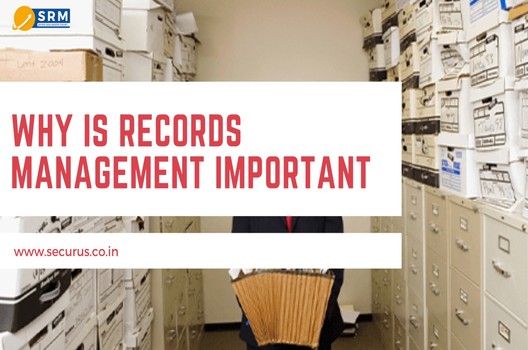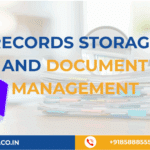In the present age, it has become even more imperative for firms to have an effective mechanism of records management. Many organizations are investing substantial sums of money in sound records management services. With the exponential growth of information and the increasing complexity of regulatory requirements, it is crucial to implement an outstanding system for handling and managing data. A well-structured records management system not only aids in compliance but also enhances productivity and efficiency within the organization. For instance, companies can capitalize on automation technologies to streamline workflows associated with records management, which can significantly reduce operational costs.
While there are hundreds of firms implementing records archival services, very few give proper attention to managing electronic documents. CEOs and CFOs must directly address the significance of comprehensive file management, which encompasses both electronic and physical records to ensure compliance with regulations. In today’s digital age, it is essential for businesses to recognize the importance of integrating electronic document management systems (EDMS) into their overall records management strategy. This not only aids in maintaining data integrity but also facilitates smoother audits and compliance checks.

Moreover, organizations should consider investing in training programs for employees to improve their understanding of effective records management practices. Proper training ensures that staff members are aware of the procedures involved in managing records, thereby reducing the risk of errors and enhancing overall efficiency.
Definition of Records Management: A Comprehensive Overview
If you are new to this subject and wish to comprehend records management, it is defined as the procedure of supervising and checking the information that is created, incurred, maintained, stored, and disposed of, irrespective of the format. Organizations must adhere to approved policies and processes required for managing records, along with schedules for retaining information. This comprehensive approach ensures that data is created, maintained, and shared effectively. Additionally, understanding the lifecycle of records management—from creation to destruction—can significantly enhance an organization’s operational efficiency. Before selecting the finest records management company, it is essential to understand the significance of meticulous record management within your business context.
1) Reduced Costs of Storing Data and Data Volume
You will be astonished to know that only five to ten percent of business records are significant. An excellent records management system enables the firm to control data growth and retain only relevant information. This system typically includes a precise schedule for retaining data, specifying how long data should be preserved, and detailing the required disposition procedures. Moreover, by eliminating unnecessary records, firms can save substantial amounts on storage costs and enhance their data retrieval processes. Implementing a records management framework also allows organizations to allocate resources more effectively, ensuring that critical information remains accessible when needed.
2) Effective Data Retrieval: Enhancing Accessibility
Information is useful only when it can be retrieved efficiently. Record Information Management becomes invaluable when you can retrieve documents quickly by indexing, organizing, and making them accessible, thereby reducing search times for employees. Consider the case of a large corporation that employed an advanced records management system, leading to a 50% reduction in time spent searching for documents. Such improvements can dramatically increase productivity across the organization. Furthermore, investing in a reliable records management service, such as www.securus.co.in, can provide organizations with state-of-the-art solutions tailored to their specific needs.




